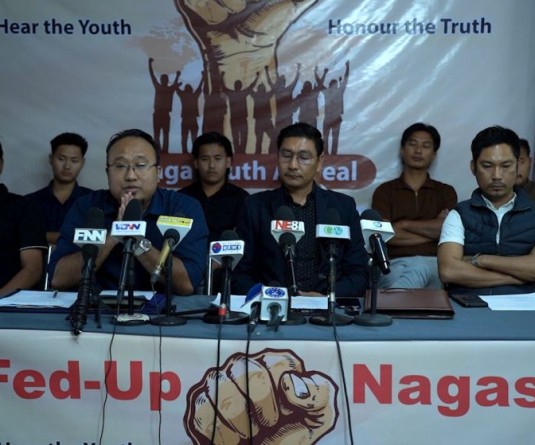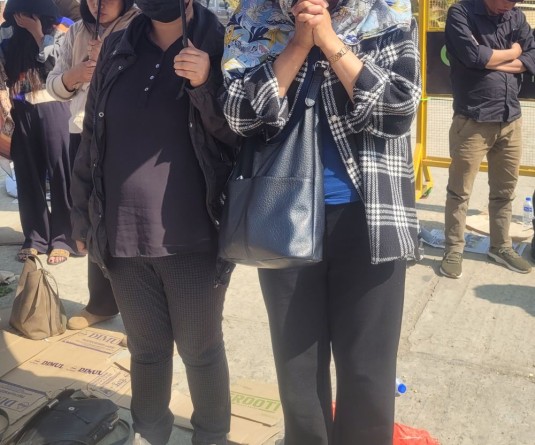Farmers market at bamboo market, BOC area, Kohima was organized in which 34 farmers from Kohima and Phek district participated with diverse produce from their farms and homesteads. (Photo Courtesy: NEN)
.jpg)
Morung Express news
Kohima | October 15
Dr Theyiesinuo Keditsu, Assistant Professor at Kohima college, today called the weavers as 'first working women' in traditional societies, as they were the first to bring independent income outside their agricultural practices while articulating that the perception of not recognising rural women as workers because they donot have paid jobs needs to change.
She was the guest speaker at the inaugural session of ‘tapestry- exhibition & sale of natural fibres’ at De Oriental Grand Hotel, Kohima as part of the International Day of Rural Women commemoration's second day of the ‘Confluence of Rural Women’ organised by North East Network (NEN).
Keditsu said rural women, who does not have a paid job, are often not recognised as workers and this perception needs to change.
The professor opined that weavers were the first working women in traditional societies, as they were the first to bring independent income outside their agricultural practices.
“We need to recognise and reward the knowledge and skills of rural women, as they have ensured our very survival,” she said.
She noted that the idea of 'poverty and deprivaty' is often equated with rural existence, and this mindset needs to be dismantled. Rural communities have the same right to have access to health care and other services, and they should not be left behind, Keditsu pointed out.
The speaker called on the need to collectively work together to ensure due recognition and acknowledgement of these rural women artisans.
She articulated that respect, reward and the efforts through rebranding the goods they produce will compensate them well. “The way we produce textiles should remain indigenous, its scale and approach should ensure the sustainability of our ecology,” she later added.
Organised by NEN with Nenterprise Chizami Weaves, five women craft groups, Khumiasu cotton producer collective, Meluri Women producer collective, Zapami Thebvo Weavers Collective, Li Cheh Kro Weaver Producers Company Ltd., and Nenterprise Chizami Weaves were featured.
Highlights of the event included demonstration, cultural performance, video screening, launch of natural cotton product collection by Chizami weaves, sale of “Thebvo na” - stinging nettle plant products, and “enhi”- grass cloak. Wekoweu Tsuhah, State Co-ordinator NEN delivered the welcome and introduction.
Neitshopeu Thopi, Coordinator Nenterprise Chizami Weaves chaired the session. Meluri and Khumiasu weavers performed a cultural song and Kereu Kenye pronounced the opening prayer.
The inaugural session was attended by women artisans, representatives from Government departments, NGOs, media and well wishers.
Another event, farmers market at bamboo market, BOC area, Kohima was organized in which 34 farmers from Kohima and Phek district participated with diverse produce from their farms and homesteads.


.jpg)



